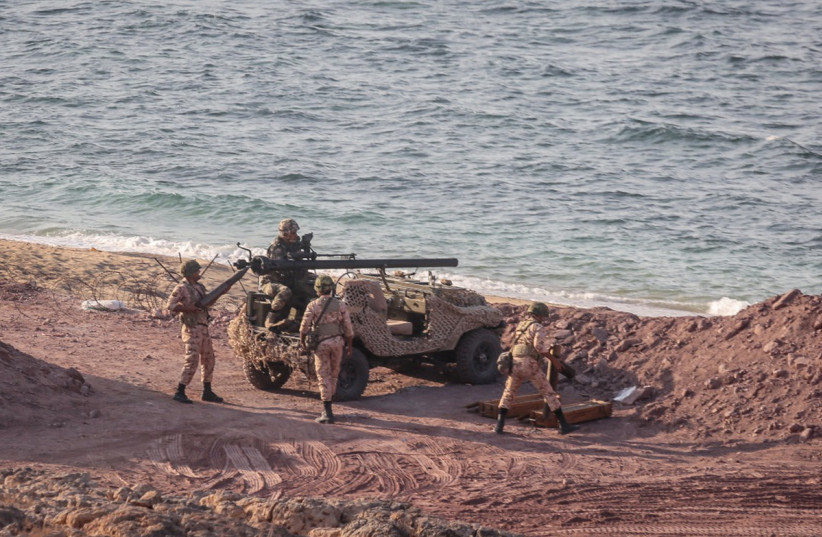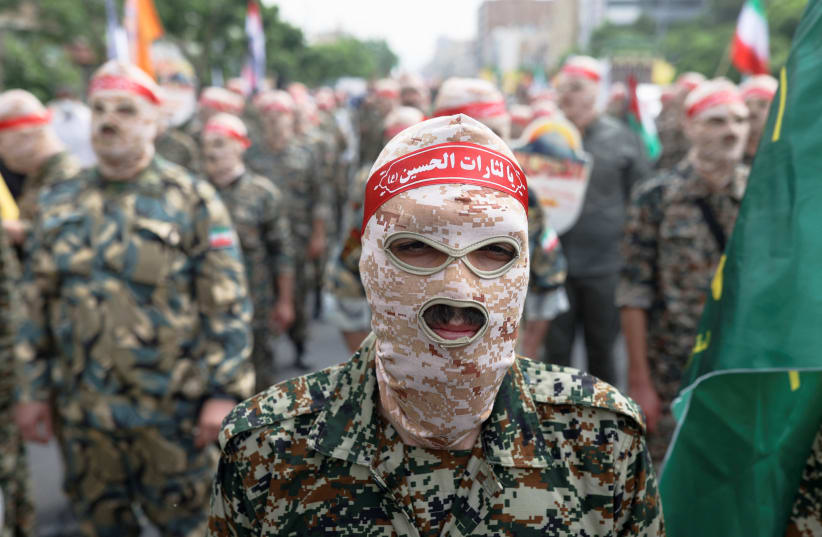We will not stop. The message could not be clearer, as Hassan Sayad Khodayari was killed outside his home in central Tehran.
A senior member of Iran’s Islamic Revolutionary Guards Corps (IRGC), Khodayari was killed in his car by five bullets fired by two alleged Israeli assassins on a motorcycle.
Khodayari is not the first Iranian to have been killed in attacks blamed on the Jewish state. But his assassination marks a change in targets in Israel’s war-between-the-wars campaign (Hebrew acronym: Mabam).
Most Iranians allegedly killed by Israel have been nuclear scientists, including Mohsen Fakhrizadeh, who many referred to as the “father” of Iran’s nuclear-weapons project and who was assassinated in November 2020.
Following the murder of Fakhrizadeh, the Biden administration reportedly told Israel to stop acting in ways that could derail the nuclear talks.


Khodayari, however, was not a nuclear engineer. He is alleged to have smuggled weapons to Syria and planned kidnappings and attacks against Jews around the world.
According to reports, Khodayari was close to former IRGC Quds Force commander Qassem Soleimani, who was killed in an American drone strike in Baghdad.
Khodayari also commanded the Quds Force’s Unit 840, a relatively secret unit that builds terrorist infrastructure and plans attacks against Western targets and opposition groups outside Iran.
In April, Mansour Rasouli, a purported member of the IRGC who operated under Khodayari’s command in Unit 840, admitted to Mossad agents in his home that he was sent to target an Israeli diplomat in Turkey, an American general in Germany and a journalist in France.
Rasouli was later released and denied his earlier confession. Regardless, it is hard to imagine that the information he revealed did not somehow contribute to the Unit 840 chief’s assassination.
The brazen murder of Khodayari means Israel has expanded its war-between-the-wars campaign, and it has begun targeting IRGC officials on their home turf.
The IRGC and its Quds Force are the main targets of Mabam.
Over the years, Israel has carried out thousands of strikes in Syria and beyond its borders by land, sea and air – and also used cyberkinetic attacks, according to foreign reports – to prevent Iran from achieving regional hegemony and becoming a nuclear state.
OVER THE 13 years of Mabam, Israel’s targets have included weapons convoys and shipments and military infrastructure, including advanced weaponry and personnel. The campaign was not limited to Syria but extended to Iraq and Yemen, according to foreign reports.
Some sources allege Israel was also behind a strike that destroyed hundreds of drones at an airbase in Kermanshah, Iran.
Yet the targeting of personnel in Iran is something new – likely a decision made by Prime Minister Naftali Bennett’s government to bring the war home.
It’s a signal that, while Iran continues to use proxies to retain plausible deniability after its attacks, Israel will continue to go after the Iranian instigators.
Khodayari’s assassination comes during the IDF’s monthlong drill, which simulates a prolonged and intensive campaign. The exercise will include a simulated strike on targets far from its borders, signaling Iran.
Israeli defense officials are also sending messages regarding the Islamic Republic’s ongoing regional hostility, while the negotiations in Vienna regarding its nuclear project have reached an impasse.
The IDF does not think the two sides will reach an agreement, and it is planning several military options should the talks fail. In addition to sanctions, they believe the Americans need to place a true military option on the table.
Last year, Chief of Staff Lt.-Gen. Aviv Kohavi said the IDF was accelerating its operational plans against Iran due to the progress of its nuclear program. Last week, a senior military officer warned that Israel was carrying out actions against its archenemy.
Defense Minister Benny Gantz also warned that the number of strategic weapons in the hands of Iran and its proxies, such as long-range cruise missiles and drones, has increased “significantly” over the past year.
He later met with US National Security Advisor Jake Sullivan and US Secretary of Defense Lloyd Austin in Washington. Iran was, of course, one of the main subjects of discussion.
Zohar Palti, former head of the Defense Ministry Political-Military Bureau, said while there was still room for diplomatic maneuvers to stop Iran, Israel will operate when needed.
“It’s not that we’re looking to attack somebody,” he recently told CBS. “The only things that we care about are our families, the existence of Israel, the safety of our children and, of course, the stability in the region.”
“The only things that we care about are our families, the existence of Israel, the safety of our children and, of course, the stability in the region.”
Zohar Palti
“And right now, it seems to me the international community, after so many months of negotiations, gives the Iranians the sense that, ‘Guys, what you see right now, it’s kids’ stuff compared to what we have the ability to do,’” Palti said.
The assassination of Khodayari – in an alleyway outside his home in broad daylight in Iran’s capital – is a message: Our abilities are incomparable. We will get to you if we need to.
